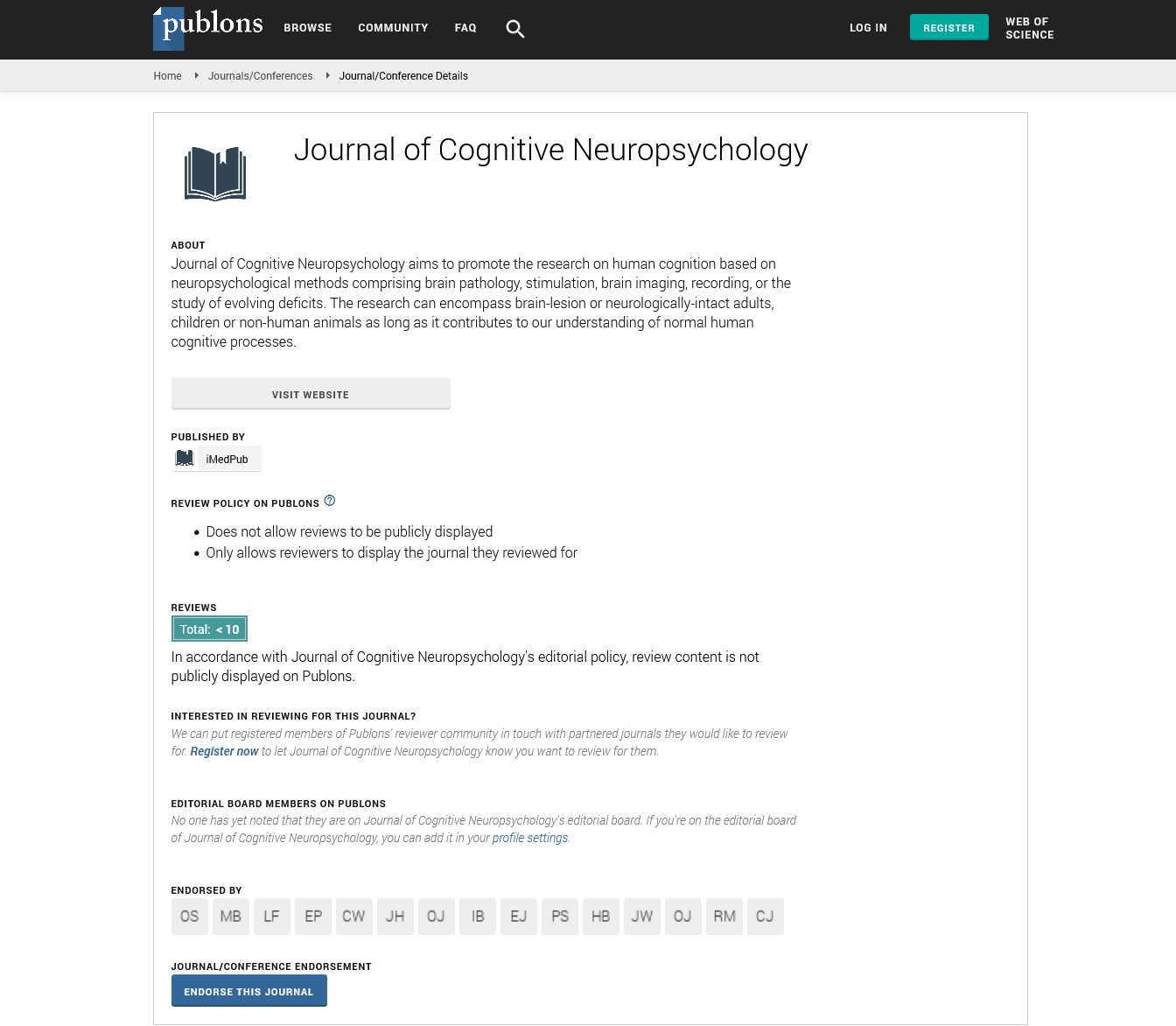Neurorehabilitation: The Need for a Holistic Perspective
World Congress on Neurorehabilitation
July 05-06 2021 | Webinar
Asst. Prof. Dr. Ramakrishna Biswal
National Institute of Technology, Rourkela, India
ScientificTracks Abstracts: J Cog Neu
Abstract
Industrialization improved our economic conditions but not the quality of life. There are evidences of serious negative consequences on human health leaving a damaging psychological imprint as a result of industrial revolution. Globally, one of the leading sources of disability is the neurological disorders like Alzheimer, dementia, Parkinson’s disease, epilepsy, headache related disorders, multiple sclerosis, neuro-infections, neurological disorders associated with malnutrition, pain associated with neurological disorders, stroke, birthrelated complications and traumatic brain injuries etc. Invasion of technology to reduce manual labor and saving time is proving to be a boomerang for our overall health. Living beings including humans are designed to work using their limbs and other parts of the body. When technology comes with lucrative offers of a comfortable life, our dependence or use of many of the body parts including the brain reduces significantly. “Use it or loose it” becomes equally important for the body as well as the technological inventions. But, we choose the later. Technology is not a problem. Our choices and decisions are. Neurological problems though are partly attributed to age-related complications; many young people these days suffer from a host of neurological problems for the overuse of and over-dependence on tech-gadgets, ultra-comfortable life and more over a choice to live a sedentary life over an active life. Neurorehabilitation is a targeted intervention to reactivate the instant messaging services of the body in general and the nervous system in particular. The intervention through pharmacotherapy, behavior therapy or neurosurgery aims at improving the functions at the neuronal level. However, little emphasis is given on prevention of or achieving long-term-positive impact of the interventions used. This practice makes neurorehabilitation less appealing. The current practices often fail to translate the theories and principles into actionable steps in a non-pharmacological way. As most patients come with a co-morbid condition, pharmacological interventions often interfere with other drugs making them a perfect candidate for adverse drug reactions. One of the primary reasons of all neurological disorders is lack of supply of oxygen to the brain and associated organs leading to damage in the cells, tissues, organs and systems. Though, neurorehabilitation is a complex medical process that aims to aid recovery from a nervous system injury, and to minimize and/or compensate for any functional alterations resulting from it, neurological problems do not only affect the central nervous system but also, the body as a whole. The common practice in neurorehabilitation aims at patient’s specific deficit followed by referral to a physical medicine and rehab specialist or if required a speech therapist, occupational therapist or neuropsychologist is also considered. Our body functions as a whole like a well-integrated coordinated system. Symptomatic treatment may give temporary relief, but for a long-term and positive therapeutic effect, holistic assessment of the individual, his/her surroundings including workplaces, activities, food and sleep habits are important dimensions to consider that can aid in the process of rehabilitation. For example, activities to improve mobility (movement) and maintain range of motion, muscle control, gait (walking), and balance, exercise programs to improve, prevent or decrease weakness caused by lack of use, manage spasticity and pain, social and behavioral skills retraining along with a low fat balanced diet with ample source of vitamins B6, B12 and folate, eating lots of fresh fruits, vegetables and whole grains and drinking plenty of water are the rehab protocols. As clinicians, therapists or rehab specialists, our approach is too specific to the problem and we ignore the associated factors that can be utilized for a faster rehab and making the patient lead an independent life quickly. Hence, understanding neurorehabilitation from a holistic perspective is an important area to be discussed and debated.
Google Scholar citation report
Citations : 8
Journal of Cognitive Neuropsychology received 8 citations as per Google Scholar report
Journal of Cognitive Neuropsychology peer review process verified at publons
Abstracted/Indexed in
- Google Scholar
- Publons
- MIAR
Open Access Journals
- Aquaculture & Veterinary Science
- Chemistry & Chemical Sciences
- Clinical Sciences
- Engineering
- General Science
- Genetics & Molecular Biology
- Health Care & Nursing
- Immunology & Microbiology
- Materials Science
- Mathematics & Physics
- Medical Sciences
- Neurology & Psychiatry
- Oncology & Cancer Science
- Pharmaceutical Sciences
